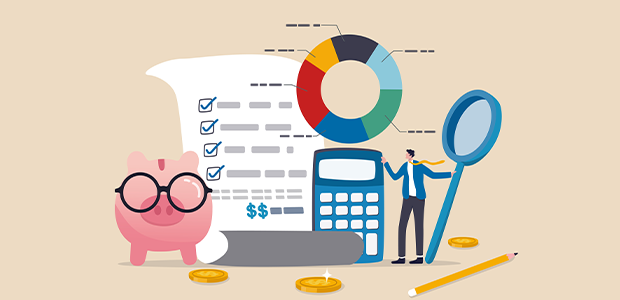
Tax planning: what you need to know
Tom Biggs, Partner at Wellers, a firm of small business accountants, discusses the tax changes you need to know to efficiently plan for your next tax return.
Back to basics
You probably know that the tax year runs from 6th April to 5th April, and that tax returns need to be completed and submitted to HMRC by the 31st January of the following year. Even though these deadlines are set in stone, many put off completing their tax returns until the last possible minute. It’s easy to understand why, as it’s often a tedious and lengthy task and when you’re running your own business, there is always something else important to be doing.
However, rushing the process close to the impending deadline can lead to mistakes that can land you in hot water with HMRC, and leave you little time to explore how to make your affairs as tax-efficient as possible. So, to save yourself the stress and potentially significant money off your tax bill, it’s best to be as prepared as possible when completing your tax return.
Changes to tax
The first thing to consider is if there are any recent changes to tax regulations that might impact you. Tax regulation changes usually occur most years following announcements by the Chancellor during a Budget, or Autumn Statement. The latest set of Statements were no different, with amendments to tax regulations that came into effect from the 2024 tax year.
One of the biggest changes saw the tax-free allowance on capital gains tax (CGT) and dividends halved, meaning many will pay additional tax. However, there are several strategic ways to reduce your exposure to these changes potentially including the timed selling of assets, striking a balance between salary and dividends, and investing your money in an ISA.
ISAs will become particularly useful for reducing tax bills as new regulations allow individuals to pay into multiple accounts. Similarly, the scrapping of the pension lifetime allowance means pensions can be used more efficiently for tax purposes. If you are unsure of what tax changes mean for you and your business, make sure to consult with a tax advisor.
Corporation tax
Once you understand which tax changes could impact you and your business, the next thing to assess is how much your business may need to pay, mostly likely as a result of corporation tax if you trade through a limited company. The rate of corporation tax depends on the profits of your business. If profits are greater than £250,000, the tax rate is at 25%. However, businesses with profits less than £50,000 will only be taxed at 19%. Of course, many businesses will sit between these two profit brackets. When this is the case, tax is charged at 25% but marginal relief can be applied to reduce the overall amount of tax owed (although it is worth noting that the effective tax rate for profits within this banding will be 26.5%).
Corporation tax is standard for many businesses but still, owners can get themselves in trouble with HMRC by leaving it too late to calculate how much is owed. This can leave them without sufficient funds to make the required payments. The sooner you can determine the size of your tax bill, the more time the business will have to budget for making payment.
Being tax efficient
Whilst paying corporation tax is likely inevitable for those operating through a limited company, there are ways to reduce your tax bill. Firstly, you can look into potentially claiming Research and Development (R&D) tax credit. This is broadly available when businesses are actively making improvements to existing processes or exploring new ideas and initiatives.
You could make use of the Annual Investment Allowance (AIA) potentially. This allows up to £1 million of investment to be deducted from profits, ultimately reducing your corporation tax bill. AIA is available to businesses investing in plant and machinery, including IT equipment, office supplies, agricultural machines, and essential building infrastructure like air conditioning or lifts.
Another strategy to help with tax efficiency is in relation to reporting on the benefits and events you provide for your employees. For example, if you host a company summer or Christmas party, you may be able to claim up to £150 per employee to be deducted from your tax bill. There are also tax benefits available for costs associated with staff, or apprentice training.
Whilst this isn’t an exhaustive list of ways to improve tax efficiency, it should give you a good idea of the breadth of ways efficiencies can be found. Of course, to be as tax efficient as possible, the best course of action is to consult with a tax advisor. Everyone’s circumstances are different, so by working closely with a tax specialist, they can understand your financial situation to then advise on the best professional solutions to help you.
Getting it done
There’s no escaping tax returns and tax payments, but too many waits until the deadline is weeks away before they start thinking about it which limits what they can do to reduce their tax liability. The best advice is to start your tax planning early and contact a trusted tax advisor to assist with the process.

